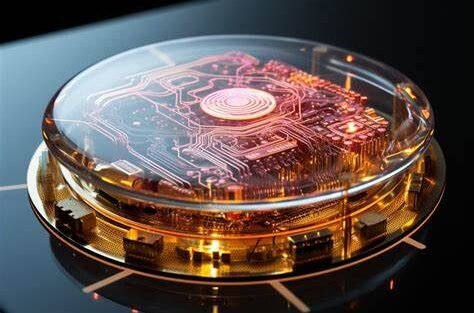Treating Paralysis Through Technology
Humans have always strived to achieve a stage in medical practices where technology will enable impossible things, specifically, tackling disabilities. And now they have done it.
The Beinao No. 1 brain chip, developed by the Chinese Institute for Brain Research (CIBR) and NeuCyber NeuroTech, has been changing the lives of patients who have paralysis. Videos published by state media revealed how the chip enables paralyzed patients to perform tasks like controlling robotic arms to pour water or transmitting thoughts directly to a computer screen. These videos have started a new wave of hope among those suffering from paralysis and disabilities.
Luo Minmin, director of CIBR and NeuCyber’s chief scientist, stated,
“Since news of Beinao No. 1’s successful human trials came out, we have received countless pleas for help.”
Scaling Clinical Trials
In the past month, Beinao No. 1 was successfully implanted into three patients, with ten more procedures planned for this year. CIBR and NeuCyber are also preparing for large-scale clinical trials involving up to 50 patients following regulatory approval. Luo emphasized,
“Next year, after getting regulatory approval, we will do formal clinical trials that will include around 50 patients.”
Source: Bing Images
These trials aim to further validate the chip’s safety and efficacy in improving patients’ quality of life.
A Focus on Patient-Centric Innovation
CIBR and NeuCyber have made it clear that their primary goal is to assist individuals living with paralysis rather than prioritizing commercialization. Addressing ethical and practical concerns, Luo said, “In the short term, when it comes to BCI, the stuff that can be sold is very limited.” This approach highlights their commitment to responsible innovation in healthcare.
More about Progress in Brain Chips and Neurotechnology
Brain-computer interface (BCI) technology has seen remarkable progress in recent years, with applications extending beyond paralysis treatment. Here are some key advancements:
- Non-Invasive BCIs: Technologies like EEG-based systems allow users to control devices without surgery, offering practical solutions for rehabilitation and communication.
- Invasive BCIs: Companies like Neuralink and Synchron are developing fully invasive chips that provide high-resolution neural signals for advanced applications.
- Neuromodulation: Techniques like deep brain stimulation are being used to treat conditions such as Parkinson’s disease and chronic pain.
- Neuroprostheses: Devices like cochlear implants restore sensory functions, showcasing the potential of BCIs to replace or enhance lost capabilities.
- AI Integration: The use of artificial intelligence in neurotechnology has improved diagnostics and personalized treatments for neurological disorders.
Source: Bing Images
Conclusion: Future Developments
The duo is already developing Beinao No. 2, a wireless invasive brain chip similar to Elon Musk’s Neuralink. Luo revealed that human trials for this next-generation technology could begin within the next 12 to 18 months, further expanding the possibilities for medical applications of brain-computer interface technology.
As these advancements continue, Beinao No. 1 symbolizes hope and progress for patients and healthcare professionals alike, ushering in a new era of medical innovation.Credit Source: MSN





